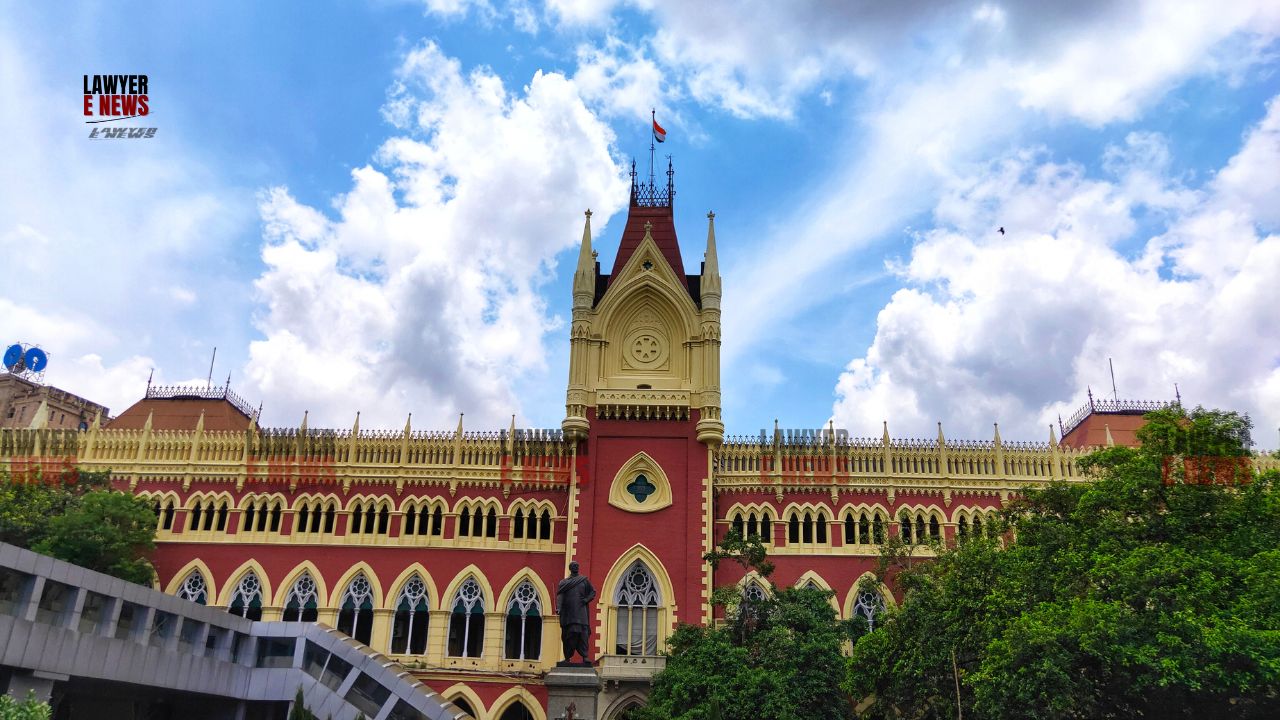-
by Admin
15 February 2026 5:35 AM



"Actions or decisions taken solely within the confines of an ordinary contract of service, having no statutory force or backing, cannot be recognized as amenable to challenge under Article 226 of the Constitution." – Justice Subhendu Samanta
Calcutta High Court dismissed a writ petition filed by Aziz Ansari, a former manager of WEBCON Consulting (India) Limited (WEBCON), challenging his termination on October 4, 2019. Justice Subhendu Samanta held that WEBCON, while performing certain public duties, was not a "State" under Article 12 of the Constitution, and the termination of Ansari's service did not involve a public law element, making the writ petition untenable.
The petitioner, Aziz Ansari, sought to challenge his termination and prayed for reinstatement at WEBCON, a consultancy firm established in 1979 with shareholders including government-affiliated institutions. Ansari argued that WEBCON’s role in executing public projects, such as skill development programs funded by the government, rendered it amenable to writ jurisdiction under Article 226 of the Constitution.
The termination order, issued via email by the Managing Director of WEBCON, cited grounds of disciplinary concerns under the company's staff rules. Ansari contested the authority of the Managing Director to issue such termination and claimed procedural impropriety.
The court analyzed two central questions:
Whether the termination order was amenable to writ jurisdiction.
Whether the termination was arbitrary or illegal.
The petitioner argued that WEBCON's public functions, funded by government projects, subjected it to writ jurisdiction. However, the court rejected this claim, citing WEBCON’s governance structure and independence:
"The Board of Directors of WEBCON manages the affairs of the company without any deep and pervasive control exercised by the government entity."
Relying on precedents such as Andi Mukta Sadguru Shree Muktajee Vandas Swami Suvarna Jayanti Mahotsav Smarak Trust v. R. Rudani and St. Mary’s Education Society v. Rajendra Prasad Bhargava, the court emphasized:
"Even if a body discharges certain public functions, its internal management decisions, such as appointment and termination of employees, do not attract writ jurisdiction unless governed by statutory provisions or involving a public law element."
The court concluded that Ansari’s termination was a matter of private contract and lacked the public law element required to invoke Article 226 jurisdiction.
The petitioner alleged arbitrariness in the termination, citing non-compliance with WEBCON’s staff rules. Rule 5 of the staff rules permits immediate termination in cases of disciplinary concerns without notice. The court reviewed the termination order and found it compliant with the prescribed rules:
"The impugned order of termination clearly and unequivocally demonstrates grounds for immediate termination of the petitioner."
The court noted that the petitioner had failed to contradict the findings in the termination order or demonstrate procedural violations.
The court dismissed the writ petition, emphasizing that WEBCON’s internal employment decisions were beyond the purview of constitutional scrutiny:
"The termination of petitioner’s service is solely an internal affair of a private company, and thus, it is not at all amenable to the writ jurisdiction."
On the legality of the termination, the court found no evidence of arbitrariness or violation of WEBCON’s staff rules. It remarked:
"Considering the entire aspect, I find no justification to entertain the present petitioner for quashing the impugned order of termination."
The ruling reinforces the principle that private entities performing public functions are subject to writ jurisdiction only when the disputed actions involve a clear public law element. The decision also highlights the limited scope of judicial review in employment disputes arising from private contracts.
Date of Decision: November 26, 2024
